Are you fascinated by the world of databases and eager to embark on a rewarding career as a Database Administrator (DBA)? Whether you’re a seasoned IT professional looking to specialize or a fresh graduate starting your journey, having a roadmap can significantly contribute to your success. In this article, we will help you understand the important steps and skills needed to become a skilled Database Administrator. So, let’s dive in and explore the exciting world of database administration!
Introduction: Exploring the Role of a Database Administrator
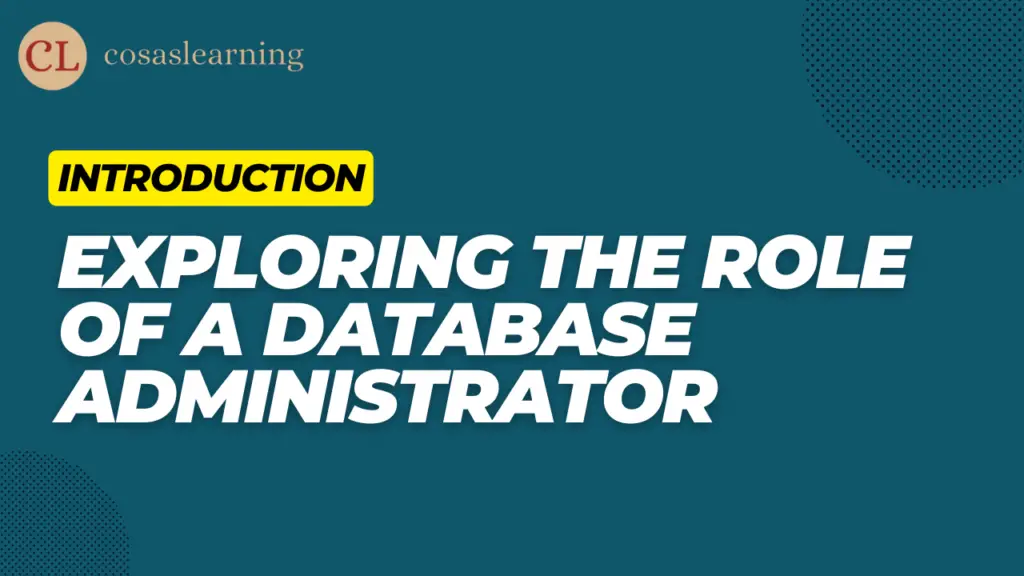
Database Administrators play a crucial role in managing and organizing vast amounts of data within organizations. They are responsible for ensuring the availability, security, and performance of databases, enabling seamless data retrieval and efficient operations. DBAs work closely with software developers, system administrators, and other stakeholders to optimize database systems and support critical business functions.
Building a Solid Foundation

Pursue a Relevant Degree or Certification
To begin your path as a Database Administrator, it’s helpful to pursue a degree in Computer Science, Information Technology, or a similar area. Additionally, obtaining industry-recognized certifications, such as Oracle Certified Professional (OCP) or Microsoft Certified: Azure Database Administrator Associate, can enhance your credibility and demonstrate your expertise to potential employers.
Gain Knowledge in Database Concepts and Technologies
Developing a strong understanding of database concepts and technologies is essential for aspiring DBAs. Familiarize yourself with relational databases, data modeling, data normalization, and database design principles. Stay updated with the latest trends in database management systems, including both SQL and NoSQL databases, to broaden your knowledge base.
Develop Strong Problem-Solving Skills
Database Administrators frequently encounter complex problems that require analytical thinking and troubleshooting abilities. Improve your ability to solve problems by practicing logical thinking, analyzing data, and using critical thinking. Building a solid foundation in mathematics and algorithms can also contribute to your problem-solving capabilities.
Mastering Database Management Systems (DBMS)
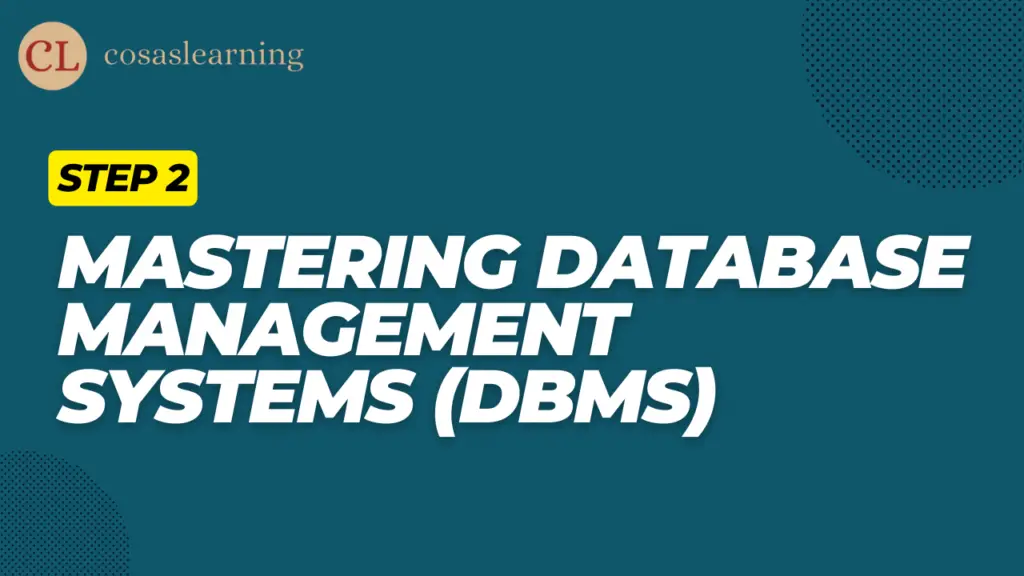
Learn SQL Fundamentals
Structured Query Language (SQL) is the backbone of relational databases. Invest time in understanding SQL syntax, data manipulation, and querying techniques. Grasping SQL fundamentals will empower you to retrieve and manipulate data efficiently.
Explore Relational Database Management Systems (RDBMS)
RDBMS, such as Oracle, MySQL, and Microsoft SQL Server, are widely used in the industry. Gain hands-on experience with one or more RDBMS platforms to understand their features, administration tasks, and performance optimization techniques.
Gain Proficiency in NoSQL Databases
Recently, NoSQL databases like MongoDB and Cassandra have gained popularity for handling large and unorganized data. Get familiar with the ideas and workings of NoSQL databases, as they provide valuable alternatives to traditional RDBMS in specific situations.
Acquiring Database Administration Skills
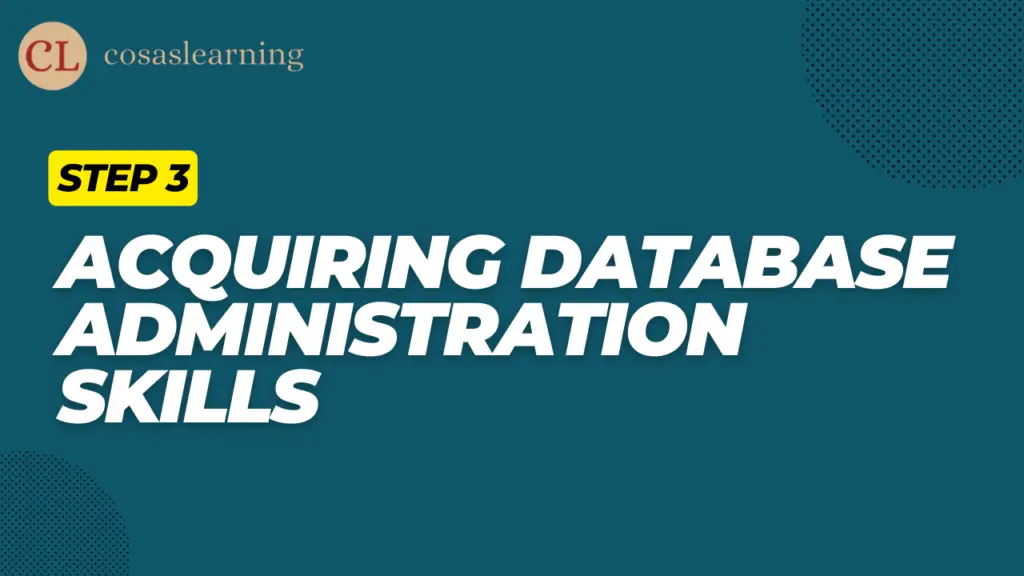
Understand Database Design and Modeling
Database design and modeling are fundamental skills for DBAs. Learn the principles of normalization, entity-relationship modeling, and database schema design. Efficient database design contributes to data integrity, performance, and scalability.
Learn Database Security Best Practices
Data security is paramount in today’s digital landscape. Acquire knowledge of database security measures, including user access controls, encryption, and data masking. Implementing robust security practices ensures the confidentiality and integrity of sensitive information.
Familiarize Yourself with Database Backup and Recovery
Database failures or data loss can have severe consequences. Gain expertise in database backup and recovery techniques to prevent data loss and minimize downtime. Understand different backup strategies, disaster recovery planning, and database replication methods.
Develop Performance Tuning Techniques
Optimizing database performance is a crucial aspect of a DBA’s role. Learn techniques to monitor and analyze query execution plans, identify performance bottlenecks, and fine-tune database configurations. Performance tuning skills directly impact the overall system efficiency.
Practical Experience and Hands-On Projects
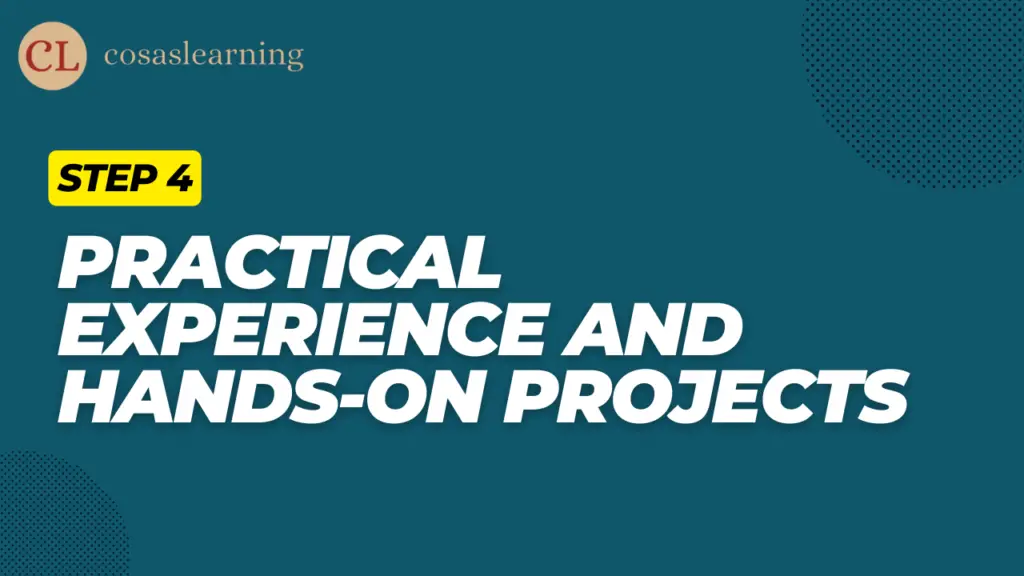
Seek Internship or Entry-Level Positions
Practical experience is invaluable in the journey to become a competent DBA. Search for internship opportunities or entry-level jobs that enable you to work alongside experienced experts. Real-world exposure will help you apply theoretical knowledge, gain insights, and refine your skills.
Work on Real-World Database Projects
Engage in hands-on projects to reinforce your understanding of database administration. Design and implement databases, optimize queries, and troubleshoot performance issues. Building a strong portfolio of projects showcases your expertise to potential employers.
Stay Updated with Evolving Technologies
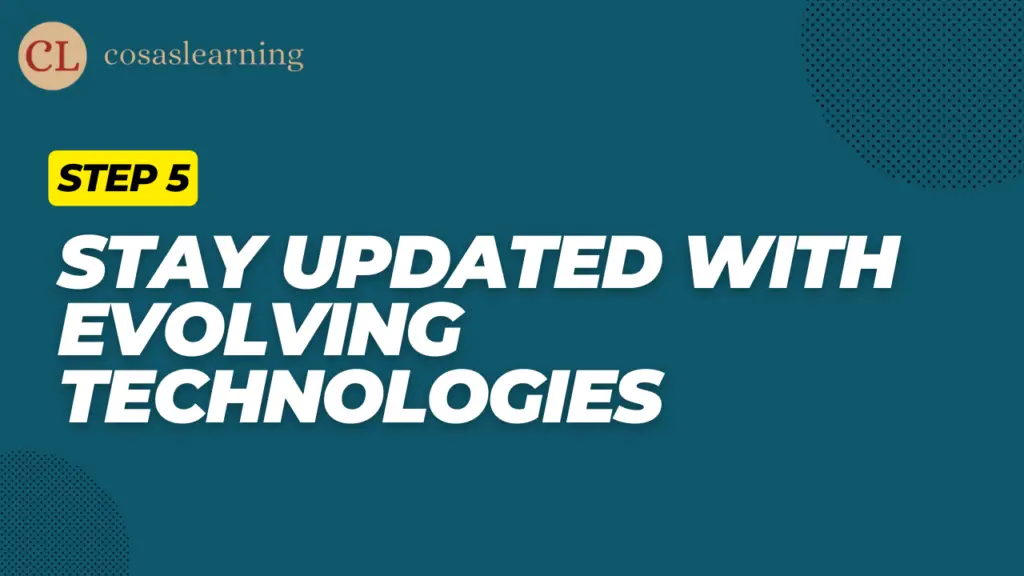
Embrace Cloud-based Database Solutions
Cloud computing has completely changed how databases are handled. Become familiar with popular cloud platforms like Amazon Web Services (AWS), Microsoft Azure, and Google Cloud Platform (GCP). Understand concepts like database as a service (DBaaS) and leverage cloud-based solutions to enhance your skill set.
Explore Big Data Technologies
The era of big data demands proficiency in handling large and complex datasets. Gain exposure to technologies like Apache Hadoop, Apache Spark, and distributed databases. Understanding big data frameworks equips you with tools to tackle data processing and analysis at scale.
Understand Data Warehousing and Business Intelligence
Data warehousing and business intelligence are essential components of modern data-driven organizations. Acquaint yourself with concepts like data integration, ETL (Extract, Transform, Load) processes, and data visualization tools. These skills enable you to provide valuable insights and support informed decision-making.
Conclusion

To become a successful Database Administrator, you need a mix of technical knowledge, problem-solving abilities, and hands-on experience. By following this roadmap, you can navigate the path to success in the world of database administration. Remember to continuously update your knowledge, stay curious, and embrace new technologies to stay relevant in this ever-evolving field.
FAQs
Click Here : To Show Your Support! 😍





